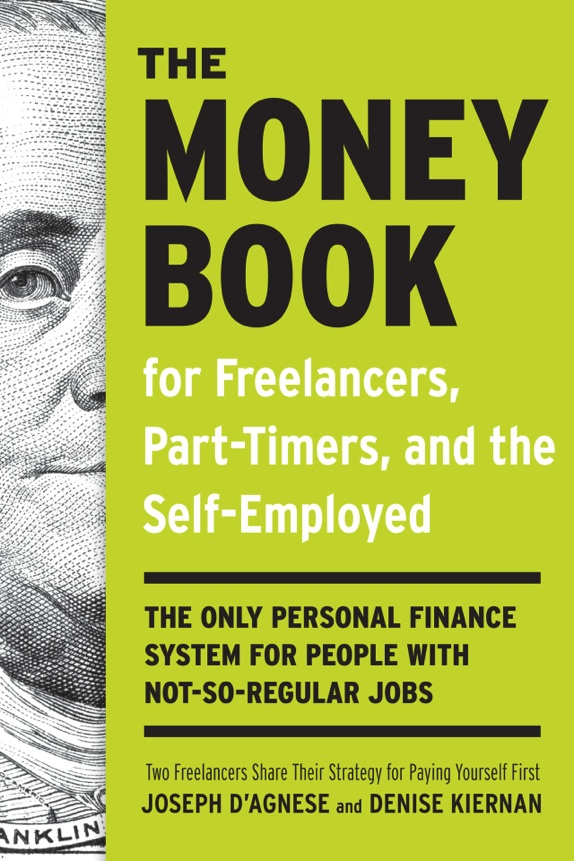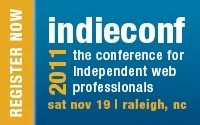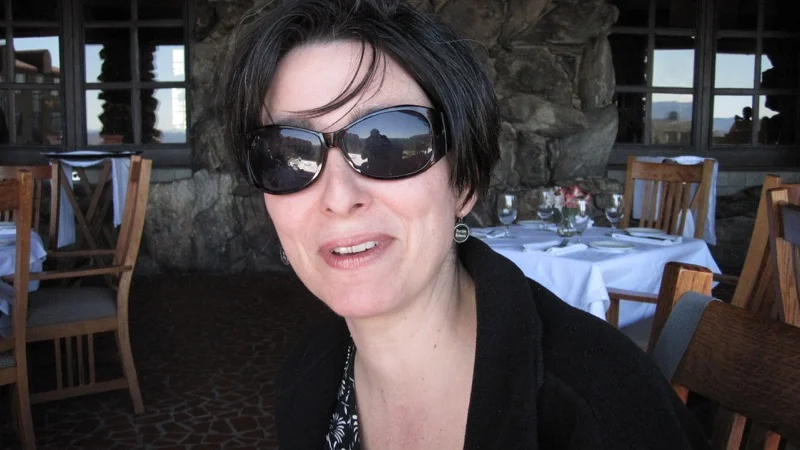For tax season, I’m running some of my older posts pertaining to our book, The Money Book for Freelancers.*
This was supposed to be the year you got your financial house in order. Get more organized. Earn more. Spend less. And reach unparalleled heights in your career.
If only you knew where to start.
We’d like to suggest that if you do anything, nip these five bad habits in the bud now, so you never have to worry about them again. We consider them to be the five primo mistakes all self-employed people make. If you correct them before they become long-term engrained problems, you’ll be in good shape to move forward with most of your financial goals.
Heck, you might even be able to skip the financial resolutions next year, and go right to the fun ones, like, “I resolve to vacation more, and never worry about money again.”
Mistake #1: Not Having an Emergency Fund
Everyone should have a stash of cash set aside in case of unexpected financial disasters and interrupted income. In fact, we’d argue that freelancers need this fund even more than traditionally employed people do, because their income is a lot more erratic. Even if you’re a crackerjack freelancer, with tons of work coming in and invoices constantly flying out the door, there are still going to be dry spells. When that happens, it would be nice to have some money set aside to dip into.
But alas, few freelancers make a habit of socking away money regularly in such an account. Don’t let that be you. It doesn’t have to be a great deal of money. Five percent from every check that comes in the door is a good amount to save, and you’ll hardly ever notice it’s missing. Just make sure the money is deposited into a bank account that is not linked to an ATM card, so you can’t raid it on a lark. And see to it that the money is kept “liquid”—not linked to important investments or burdened with any withdrawal restrictions. A checking account at an online bank is the perfect place for the cash. Just an arm’s distance away, but close enough to tap into if need it. How much should you save? Start with one month’s living expenses, and then see if you can push it to three or six.
Mistake #2: Not Saving for Taxes
One of the blessings—and curses—of being self-employed is not having an employer who withholds your taxes from every paycheck you receive. When you bill a client, you bill for the whole enchilada. And when you get paid, you get the whole enchilada too. The trouble is, when tax time comes around, that tasty treat has long been gobbled up. Make sure you’ve left enough of that enchilada to give the tax man the taste he needs.
The worst time to start thinking about your taxes is weeks or even days before you have to pay them. Ideally, you want to be socking away money throughout the year, a little out of every single check that comes in the door. That way, you can slowly save up a tax nest egg. Not sure how much to take out? Not a problem. Look at your tax documents from the last two or three years, and calculate about how much you have been paying the tax man, expressed as a percentage of your total income. Start saving that percentage out of every paycheck. This number varies wildly from freelancer to freelancer, so mind your own business—not someone else’s.
Mistake #3: Not Paying Estimated Taxes
What good is saving that tax money if you don’t use it to pay The Man? In our research we discovered that accountants meet plenty of well-intentioned yet sad freelancers who do not pay their estimated taxes during the year, and who then feel doubly screwed when they have to settle up at year’s end. We’ve never understood this mentality: Would you rather pay $1,250 four times a year, or be forced to come up with $5,000 (and penalties and interest) in one lump sum once a year?
It’s a no-brainer: Paying in small, manageable chunks really makes a difference. It’s easier on your pocket, and you are less likely to blow that tax money on a spur-of-the-moment vacation to the Bahamas if you pay your taxes on a quarterly basis. If you develop the good habit of saving for your taxes, then you should develop the equally good habit of disbursing those funds in a timely fashion throughout the year. A good accountant or tax preparer should be able to help you with this.
Mistake #4: Not Treating Yourself Like a Business
Even if you are a company of one, you are a business. That means organizing your finances as any responsible business would. If you are not already, begin tracking income and expenses down to the penny. Receipts are your friend—never let them slip away. Financial software programs—such as Quicken or mint.com—can take some of the pain out of this chore and help make tax time a cinch. If you need to send and track invoices, manage clients, and do time-tracking, use something like FreshBooks or QuickBooks.
And that’s just for starters. You must cultivate an interest in all things business. You must have business cards. You must have a website. You must develop a system for receiving and returning phone calls in a timely fashion. You must have a logo and stationery. You must have a retirement account. You must develop a process that keeps you connected to the rest of the business world, and you must execute it flawlessly in all your dealings with others.
Amazingly, this is hard for a lot of people to do. “I’m a website designer,” they say. Or, “I write software. I don’t want to be bothered learning about business. I don’t want to learn about investments or credit card accounts or invoicing. It’s boring.” Okay, fine. Just understand that if you don’t want to deal with these little details, if you can’t get psyched about this geeky stuff, you must hire someone to help take care of it for you. And don’t let us catch you bitching about it, either. If you don’t want to do it, you must be willing to pay for it. Your business won’t take care of itself.
Mistake #5: Living for the Big Score
A financial planner we interviewed told us that all self-employed people, including himself, are dreamers. They throw themselves into their work, trying to achieve their great vision, and forget about socking away small amounts of money for themselves along the way. Some people, if they do get money, stick it back in the business. “Once I land this big project, sell this book, launch this product, or share my great invention with the world,” they tell themselves, “THEN I’ll have so much money that I’ll be able to finally save for retirement.”
Folks, this is crazy talk. This is how cat burglars think: They live their lives as if waiting for the big score, which never freaking materializes. So do this today: Start saving a little from each paycheck for your retirement. It doesn’t have to be very much. Just let it be something. If you must trick yourself, pay a little extra to your emergency fund and then redistribute from that to a dedicated retirement account. We all think we’re going to live forever but that is not true. Time flies, and you may not have the time you think you have to build up a substantial nest egg. “I’ve a great life and a great career,” a ruggedly handsome, athletic-looking designer told us at a book fair recently. “I have tons of clients and I’m never without work. The problem is, I’m fifty-five and I don’t have anything set aside for retirement.” That’s a problem. Learn from this gent’s mistake. Start saving for retirement today, and let today mean today.














